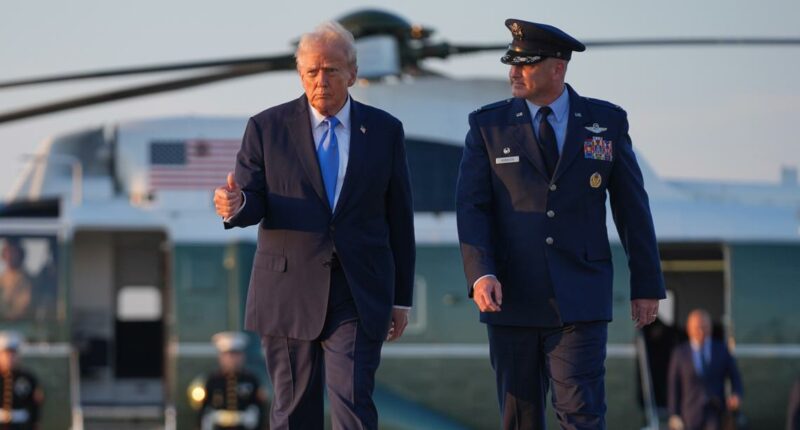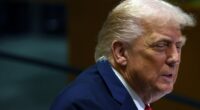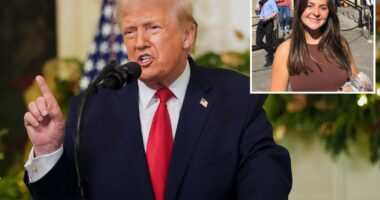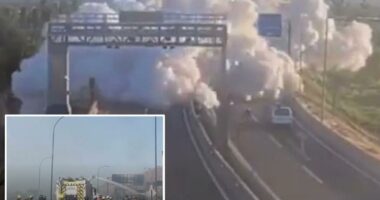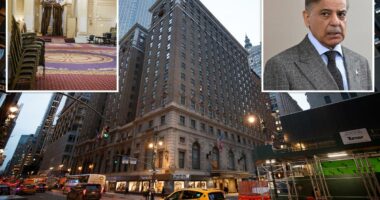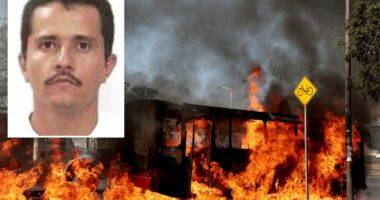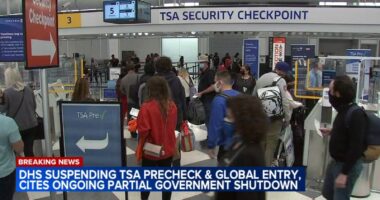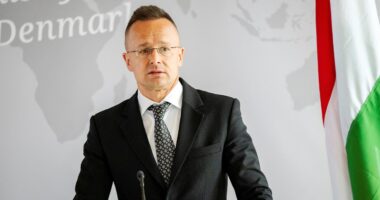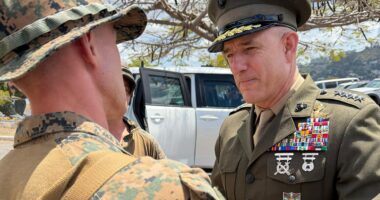Share this @internewscast.com
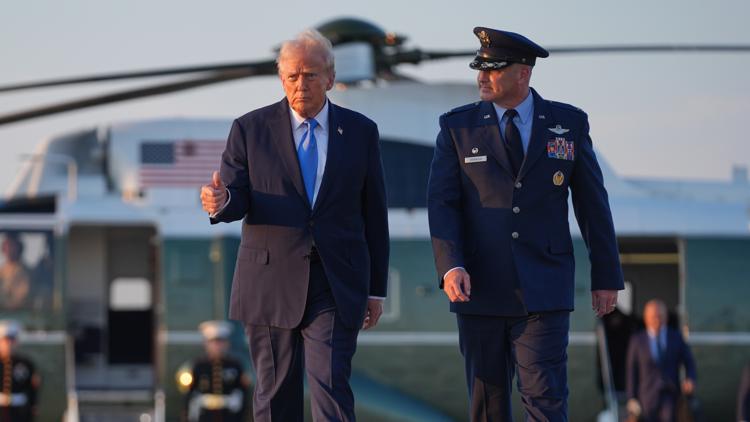
The U.S. president’s speech comes at one of the most volatile moments in the world body’s 80-year-old history.
WASHINGTON — On Tuesday, President Donald Trump revisited the United Nations to highlight his accomplishments in foreign policy during his second term and criticized the organization as ineffective.
Global leaders paid close attention to his speech at the U.N. General Assembly, as Trump has swiftly reduced U.S. involvement with the organization within his first eight months in office. Even in his first term, he was critical of the multilateral principles championed by the United Nations.
Following his most recent inauguration, Trump signed an executive order on day one to withdraw the U.S. from the World Health Organization. Soon after, he ended U.S. participation in the U.N. Human Rights Council and initiated a review of U.S. membership in numerous intergovernmental organizations to ensure they align with his “America First” policy.
Trump escalated that criticism on Tuesday, saying it’s “empty words don’t solve wars.”
“What is the purpose of the United Nations?” Trump questioned. “I’ve always believed that the U.N. holds vast, vast potential, but it’s far from reaching that potential.”
Trump offered a weave of jarring juxtapositions in his address to the assembly.
He portrayed himself as a peacemaker, listing his administration’s successes in several global conflict zones. Simultaneously, Trump justified his military actions against Iran and, more recently, alleged drug traffickers from Venezuela, criticizing globalists for threatening stable nations.
The U.S. president’s address typically ranks among the most watched events of the annual assembly. This year, it coincides with one of the most challenging times in the U.N.’s 80-year history. Leaders are grappling with ongoing conflicts in Gaza, Ukraine, and Sudan, uncertainties surrounding the impact of emerging artificial intelligence technologies, and concerns about Trump’s negative stance toward the global institution.
Trump has also raised new questions about the American use of military force in his return to the White House, after ordering U.S. airstrikes on Iranian nuclear facilities in June and a trio of strikes this month on alleged drug-smuggling boats in the Caribbean Sea.
The latter strikes, including at least two fatal attacks on boats that originated from Venezuela, has raised speculation in Caracas that Trump is looking to set the stage for the ouster of Venezuelan President Nicolás Maduro.
Some U.S. lawmakers and human rights advocates say that Trump is effectively carrying out extrajudicial killings by using U.S. forces to lethally target alleged drug smugglers instead of interdicting the suspected vessels, seizing any drugs and prosecuting the suspects in U.S. courts.
“This is by far the most stressed the U.N. system has ever been in its 80 years,” said Anjali K. Dayal, a professor of international politics at Fordham University in New York.
Trump to hold one-on-one talks with world leaders
Trump touted “the renewal of American strength around the world” and his efforts to help end several wars. He peppered his speech with criticism of global institutions doing too little to end war and solve the world’s biggest problems.
General Assembly President Annalena Baerbock on Tuesday said that despite all the internal and external challenges facing the organization, it is not the time to walk away.
“Sometimes we could’ve done more, but we cannot let this dishearten us. If we stop doing the right things, evil will prevail,” Baerbock said in her opening remarks.
Following his speech, Trump will hold one-on-one meetings with U.N. Secretary-General António Guterres and the leaders of Ukraine, Argentina and the European Union. He will also hold a group meeting with officials from Qatar, Saudi Arabia, Indonesia, Turkey, Pakistan, Egypt, the United Arab Emirates and Jordan.
He’ll return to Washington after hosting a reception Tuesday night with more than 100 invited world leaders.
Gaza and Ukraine cast shadow over Trump speech
Trump has struggled to deliver on his 2024 campaign promises to quickly end the Israel-Hamas war in Gaza and Russia’s invasion of Ukraine. His response has been also relatively muted as some longtime American allies are using this year’s General Assembly to spotlight the growing international campaign for recognition of a Palestinian state, a move that the U.S. and Israel vehemently oppose.
France became the latest nation to recognize Palestinian statehood on Monday at the start of a high-profile meeting at the U.N. aimed at galvanizing support for a two-state solution to the Mideast conflict. More nations are expected to follow.
Trump, for his part, in the lead-up to Tuesday’s address has tried to keep focus on getting agreement on a ceasefire that leads Hamas to releasing its remaining 48 hostages, including 20 still believed be alive.
But in his address, he sharply criticized the statehood recognition push.
“The rewards would be too great for Hamas terrorists,” Trump said. “This would be a reward for these horrible atrocities, including Oct. 7.”
Trump also addressed Russia’s war in Ukraine.
It’s been more than a month since Trump’s Alaska summit with Russian President Vladimir Putin and a White House meeting with Ukrainian President Volodymyr Zelenskyy and key European leaders. Following those meetings, Trump announced that he was arranging for direct talks between Putin and Zelenskyy. But Putin hasn’t shown any interest in meeting with Zelenskyy and Moscow has only intensified its bombardment of Ukraine since the Alaska summit.
European leaders as well as American lawmakers, including some key Republican allies of Trump, have urged the president to dial up stronger sanctions on Russia. Trump, meanwhile, has pressed Europe to stop buying Russian oil, the engine feeding Putin’s war machine.
Trump said a “very strong round of powerful tariffs which would stop the bloodshed, I believe, very quickly.” He repeated his calls on Europe to “step it up” and stop buying Russian oil.
Trump has Oslo dreams
Despite his struggles to end the wars in Ukraine and Gaza, Trump has made clear that he wants to be awarded a Nobel Peace Prize, repeatedly making the spurious claim that he’s “ended seven wars” since he returned to office.
He again highlighted his administration’s efforts to end conflicts, including between Israel and Iran, India and Pakistan, Egypt and Sudan, Rwanda and the Democratic Congo, Armenia and Azerbaijan, and Cambodia and Thailand.
“It’s too bad that I had to do these things instead of the United Nations doing them,” Trump said. “Sadly, in all cases, the United Nations did not even try to help in any of them.”
Although Trump helped mediate relations among many of these nations, experts say his impact isn’t as clear cut as he claims.
AP journalists Tracy Brown and Darlene Superville in Washington and Bill Barrow in Atlanta contributed to this report.
Copyright 2025 Associated Press. All rights reserved. This material may not be published, broadcast, rewritten, or redistributed.
